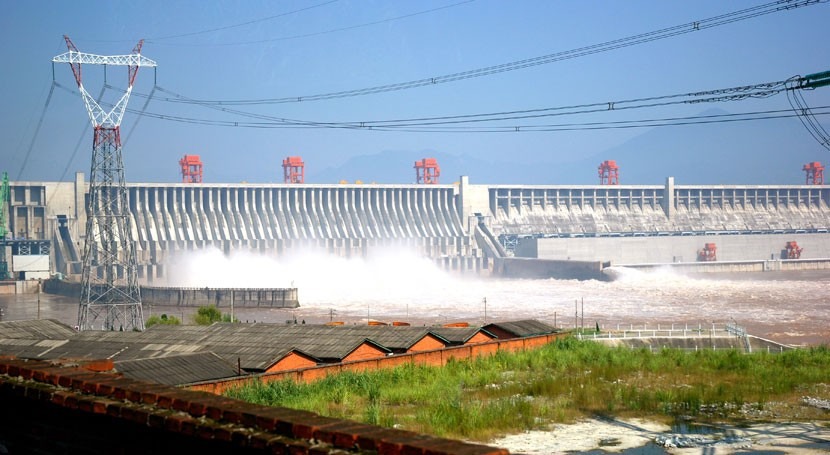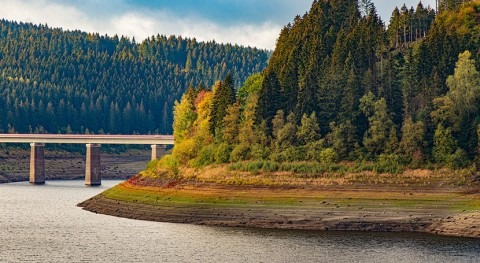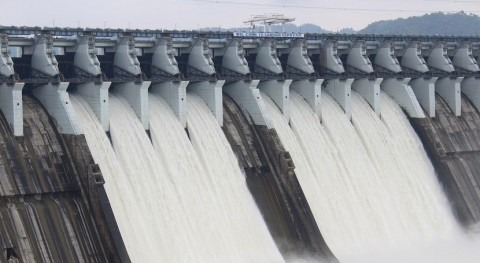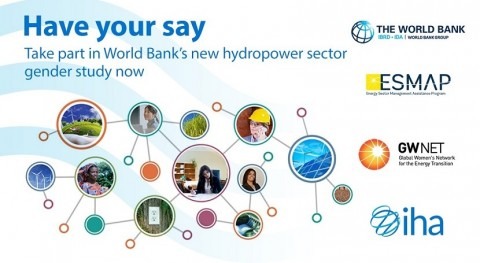The Hydropower Sector Climate Resilience Guide, set to be published in 2019, is being developed by the International Hydropower Association (IHA) with technical and financial support from the World Bank Group (WBG) and European Bank for Reconstruction and Development (EBRD).
The guide will assist hydropower companies to consider and manage climate-related risks in project design and operations, addressing the demand from industry, investors, policy-makers and communities for international guidance on good practice in this area.
At a recent technical workshop in London, representatives from hydropower operators and developers that have piloted the draft (beta version) of the guide shared their experience and feedback on its practicality to assess climate risks and its suitability to inform design options and resilience measures.
The workshop marked the final stage of consultation ahead of the guide’s expected launch at the World Hydropower Congress in Paris in May 2019.
“The Hydropower Sector Climate Resilience Guide will deliver pragmatic and accessible guidance for the hydropower sector, which is so important as a source of renewable, clean energy,” said Patrick Ray, Assistant Professor of Environmental Engineering at the University of Cincinnati, USA, who is a member of the expert advisory panel formed by IHA to develop the guide. “It will draw from cutting-edge climate science, acting as a bridge between the scientific and engineering community.”
Addressing the workshop, Richard Taylor, Chief Executive of IHA, said: “As a low carbon and cost-effective technology, hydropower produces almost two-thirds of the world’s renewable electricity generation and is making a significant contribution to delivering on the Paris Agreement and the Sustainable Development Goals.”

Denis Aelbrecht, Head of Technology at EDF and member of the expert advisory panel, and Cristina Diez Santos, IHA analyst.
“Hydropower projects need to manage climate risks associated with their dependency on runoff and so this guide responds to the demand from owners, operators, investors and governments for clear and practical guidance for risk mitigation. The aim of this testing phase is to ensure the guide is meaningful, credible and applicable,” Mr Taylor added.
Albania’s state-owned hydropower operator KESH is one of the organisations to have piloted the guide, leading to its recent adoption of a climate risk management plan. The plan was adopted as part of a loan agreement with the EBRD and lists a range of structural and non-structural adaptation measures.
“Building know-how in the field of climate resilient hydropower operation is an essential element of our strategy to sustain and further develop our position as a leading electricity generator in the Western Balkan region,” said KESH CEO Agron Hetoja, announcing the climate risk management plan in December 2018.
The IHA workshop for more than 40 participants was held at the London headquarters of EBRD on 30 January 2019. Following the workshop, the project’s advisory expert panel will use the feedback received to finalise the guide for publication.
“We see financing hydropower as being indispensable to the clean energy transition, but we really must think about a project’s resilience to the impacts of a changing climate when investing in the sector,” said Dr Craig Davies, Head of Climate Resilience Investments at EBRD.
“This workshop is a very important step in creating replicable, well-understood guidance based on experiences of good practice from industry,” Dr Davies added.
Pravin Karki, the World Bank’s Global Lead for Hydropower and Dams, who also participated in the workshop, added: “The World Bank is pleased to support the IHA initiative to develop an industry guide for climate change resilience.”
The Hydropower Sector Climate Resilience Guide will be presented to delegates at the World Hydropower Congress at a workshop on 14 May 2019 co-convened by EBRD, the World Bank and the Korea Green Growth Trust Fund and a climate resilience focus session on 15 May co-convened by EBRD. Participants will learn how the guide supports resilient investments and the steps required to complete a climate risk management plan. To register to attend, please visit the Congress website.



















